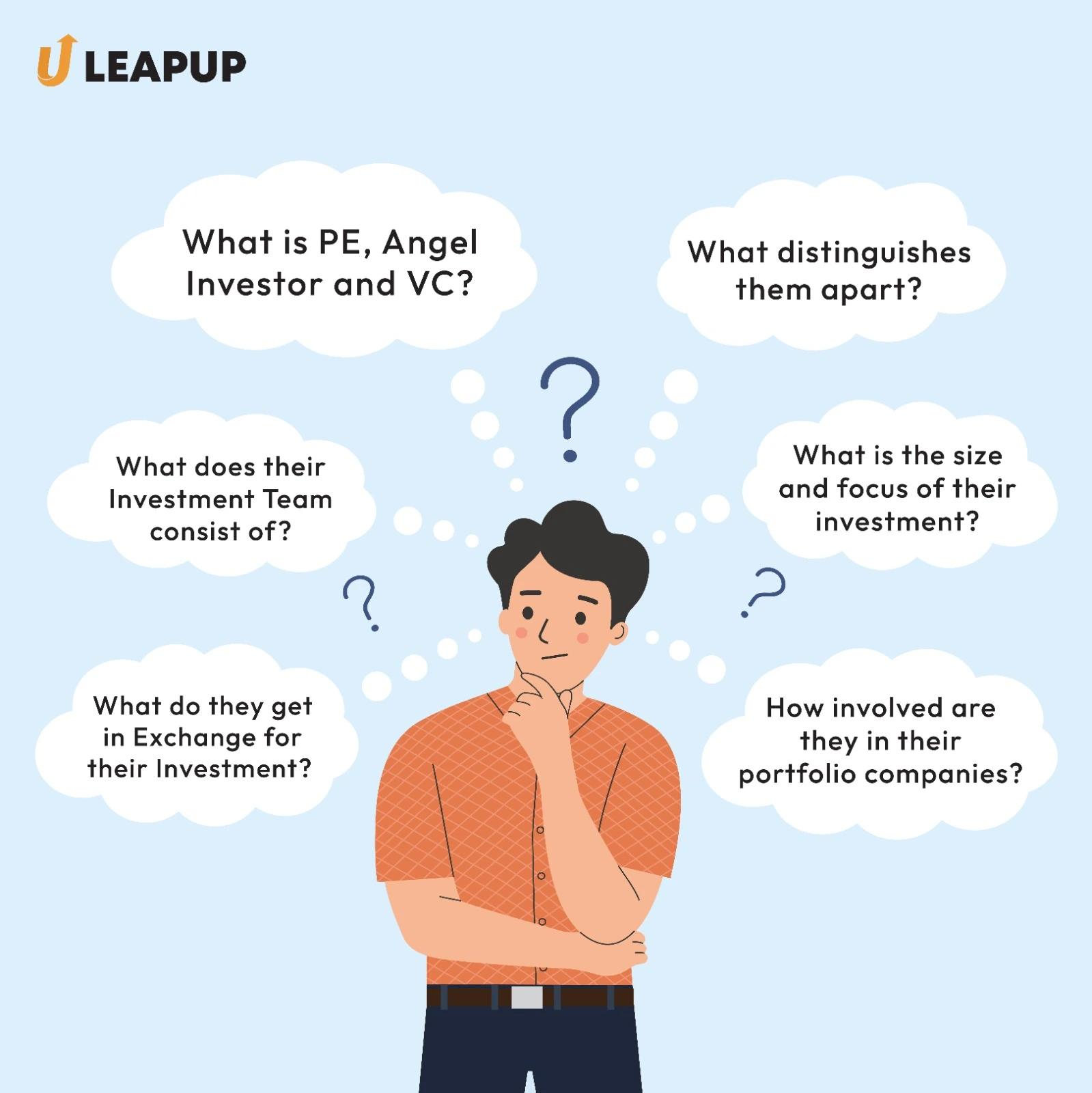

2025 LeapUp Edutech PVT. LTD
Venture capital is a kind of financing that funds high-risk startups with high growth potential. But the main question here is- which kinda startups do VC firms choose to invest in?
The startups that have good ideas or technology, may or may not have revenue, but have the potential to achieve high growth that balances out risks associated with failure are chosen by VCs to put in their capital for growth.
As time progresses, upon witnessing growth, VCs may want to acquire the whole or a substantial part of the startups.
To sum it up, we can say these firms essentially contribute to entities promising growth potential and developing the entrepreneurship landscape.
Wondering what makes these firms unique? The next section enlists the features of a Venture Captial. So what are you waiting for? Keep Scrolling!
Conclusively, we can say that VCs act as catalysts in the growth of startups with potential. They embody a symbiotic equation between risk and reward with their capital, strategic guidance, and networking circle. This way VCs act as fuel in the entrepreneurial spirit and redefine the Indian startup system.
The next in line is Angel Investors; as the name suggests are investors that act like angels to early-age startups. They infuse a significant amount of cash in return for which they get equity or convertible debt in return.
Often known as Seed Investors, they invest in businesses that could even be at pre-revenue stages with very few or negligible customers at bay. Seed investors also provide financing to research business ideas, develop prototype products, or even conduct market research.
Before, we proceed further, do you know the various valuation methods that are used in industry to evaluate the value of a business? If not, tap here!
Private Equity is a form of equity financing in which firms deploy their capital into companies that have demonstrated stable profits, cash flow, and debt management.
They target companies that have crossed initial revenue generation and other nitty-gritty of the early-stage startups.

Now coming to the final section- a comparison of the trio and seeing how they measure up at different factors.
One of the main important questions is- what do these investors get in return?
Let’s understand-
Here comes the end of our detailed comparison between Angel Investors vs. Venture Capitalists vs. Private Equity.
Like what you’re reading? Then don’t forget to share!
And for more such informative articles, Stay Tuned🙂


2025 LeapUp Edutech PVT. LTD
The only CFA Training Program that provides complete personalization via 1-on-1 Mentorship & Instant Doubt Solving by qualified faculties.
This program is specially curated for Working Professionals & Students with busy schedules.
Join our Level 2 Online Training and Leapup In Your Core Finance Career.
Appear for 8 CFA mock test level 1 in Computer-Based Testing (CBT) format + solve 30 subjectwise CFA level one practice questions.
Appear for 8 mocks in CBT format to crack your CFA Level I Exam.